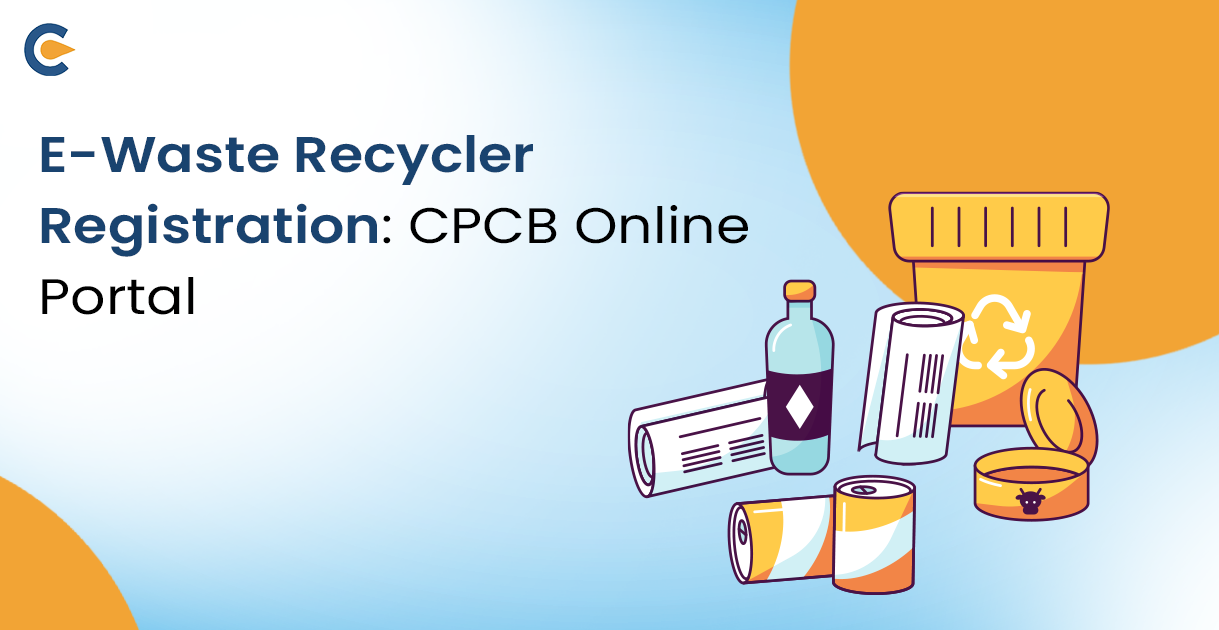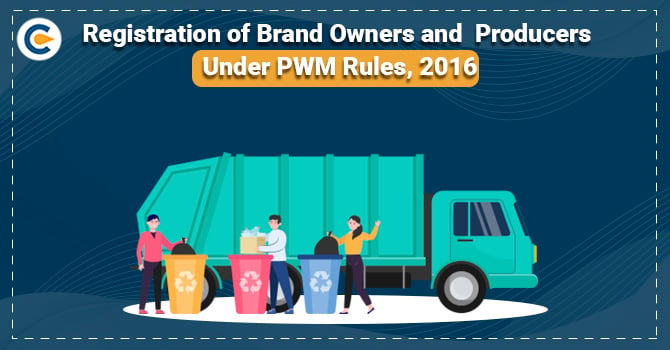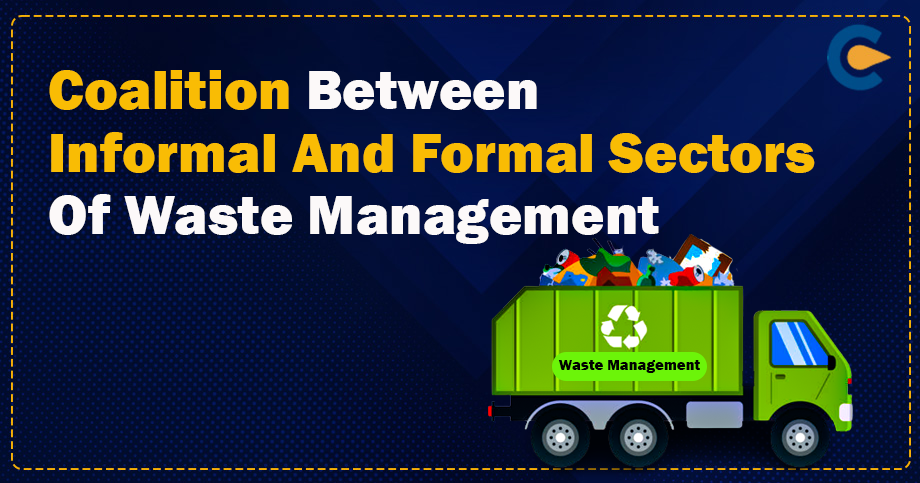Discarded electrical or electronic gadgets are referred to as electronic garbage or e-waste. E-waste also includes used electronics that are intended for disposal, salvage, and recycling through material recovery, reuse, resale, or refurbishing. E-waste management is the process of gathering e-waste, recovering and recycling material safely, and disposing of e-waste appropriately to lessen its harmful effects on the environment.
Any electronic equipment, such as computers, cell phones, televisions, and other gadgets, that is no longer in use or has grown outdated is referred to as e-waste. Because e-waste can have negative consequences on the environment and public health, it must be disposed of properly. The process of recycling electronic waste involves securely and effectively reusing or discarding electronic equipment.
Who are considered as E-Waste Recyclers?
Any person can be an E-waste recycler in India. If you are interested in starting a business for recycling E-waste, you can get the necessary licenses and complete the required registration processes for the same. A person who recycles the E-waste and is registered as an E-waste recycler with the Central Pollution Control Board is considered an E-waste recycler.
The Role of CPCB in E-waste Regulation
Established by statute in September 1974, the Central Pollution Control Board (CPCB) was created in accordance with the Water (Prevention and Control of Pollution) Act of 1974. Additionally, the Air (Prevention and Control of Pollution) Act of 1981 gave the CPCB the authority and duties that it currently possesses. In addition to providing technical assistance to the Ministry of Environment and Forests about the terms of the Environment (Protection) Act, 1986, it functions as a field formation. The Indian government has addressed the issue of e-waste by introducing a number of rules and legislation. The aforementioned rules seek to institute a structure for the implementation of ecologically sustainable practices, e-waste collection and recycling guidelines, and extended producer responsibility (EPR).
The online E-Waste Management System, known as the E-Waste EPR Portal, allows manufacturers to apply online for the granting of a registration certificate, recycling targets, and an EPR obligation. It is necessary for all parties involved, including producers, recyclers, refurbishers, and manufacturers, to register on this system. After obtaining the necessary information on the portal in accordance with SOP, the CPCB will prepare an Extended Producer Responsibility Registration Certificate of Producer in the producer’s favour through the site.
What is an E-Waste Recycler Registration?
The procedure by which organizations or individuals engaged in the recycling and disposal of electronic waste (e-waste) must register with the relevant regulatory authorities is known as “E-waste recycler registration.” The management of e-waste in India is fundamentally based on the Extended Producer Responsibility idea. It is mandatory for producers to provide funding for the ecologically responsible handling of electronic waste produced by their goods. Having registered recyclers on board is essential to carrying out this obligation. E-waste recyclers in India are required by law to register with the State Pollution Control Boards. To operate the recycling electronic waste company, this registration is required. The registration procedure includes providing the required paperwork and making sure that the requirements are met.
Compulsory E-Waste Recycler Registration on CPCB Online Portal
In a notice to registered recyclers by the Central Pollution Board of India, it is stated that it is compulsory to have an E-waste Recycler Registration. This registration can be done on the CPCB online portal. As per the new amendments in Waste Management Rules, all waste battery recyclers are required to transfer and generate the EPR credits to producers to fulfill their EPR obligations. As per the notice to registered recyclers, the Indian government has started the online system and issued the companies that manufacture batteries.
It is mandatory to get an E-waste Recycler Registration on the CPCB online portal in order to issue the credit. A manual for guidance has also been provided on the portal for the first-timers.
As per the notice to registered recyclers, till now, 1,27,661.35 tonnes of obligations of EPR have been issued to producers. But only 5951.47 tonnes of EPR certificates can be found on the portal. The non-compliance with the rules and regulations mentioned by CPCB in regard to E-waste management can lead to actions from the government.
Why get an E-Waste Recycler Registration?
It is very beneficial to get E-waste recycler registration in India. Some of the common benefits are:
Streamlined Procedures:
Establishing a uniform system for monitoring and handling e-waste is frequently a part of the registration procedure. This facilitates improved collaboration with regulatory agencies, guarantees transparency, and streamlines the recycling process.
Stopping the Illegal Trade in E-waste:
Enrollment serves as a disincentive to illicit trafficking and disposal of e-waste. It creates a distinct chain of accountability for recyclers, which facilitates effective industry monitoring and regulation by the government.
Regulatory Compliance:
As part of regulatory frameworks, governments and environmental agencies frequently require the registration of e-waste recyclers. Compliance guarantees that recyclers follow laws and rules pertaining to the environment, avoiding improper and dangerous disposal methods.
Protection of the Environment:
Registering shows a dedication to recycling E-waste in an eco-friendly manner. It contributes to overall environmental conservation by reducing the negative effects that hazardous elements found in electrical gadgets have on the land, water, and atmosphere.
Extended Producer Responsibility (EPR):
EPR initiatives, in which producers share accountability for the whole lifespan of their products, are frequently associated with e-waste recycler registration. By guaranteeing that recyclers take an active part in EPR programs, registration promotes a more circular and sustainable economy.
Obtaining Government Assistance and Incentives:
Government funding, subsidies, or incentives targeted at encouraging ecologically friendly practices may be available to registered recyclers. This assistance may be used to improve overall efficiency, upgrade facilities, and introduce environmentally friendly technology.
E-Waste Recycler Registration with Corpbiz
Get your E-Waste Recycler Registration today with Corpbiz. Our team at Corpbiz consists of experts with expertise in E-Waste Recycler Registration. Our professional will provide assistance till the end of the E-Waste Recycler Registration process. Our experts guide and assist clients with all paperwork required and regular follow-ups and also provide support after the E-Waste Recycler Registration process has been completed.
Frequently Asked Questions
How can I become a certified e-waste recycler in India?
To get an E-Waste Recycler Registration in India, you can visit the CPCB online portal and register.
How do I register for e-waste management?
To get an E-Waste Recycler Registration, you will first have to visit the online portal of CPCB, then gather all the documents required, submit them with the required documents, and get the E-Waste Recycler Registration for E-waste management.
How do I start an e-waste recycling business?
To start an E-waste business in India, you will first have to get the business registered as per the company rules. Then, choose an appropriate name and structure of the business. Get all necessary licenses and permits and other crucial registrations relating to E-waste and recycling of E-waste in India.
Is an EPR certificate mandatory?
Yes, an extended producer's responsibility certificate is mandatory in India.
Is EPR a successful strategy?
EPR regulations have had a significant impact on reducing pollution and have greatly aided in the increase of recycling efforts. Positive results are starting to be seen across the nation.
For whom is EPR registration required?
Electronic and electrical items such as laptops, computers, phones, printers, washing machines, batteries, chargers, and many more require an EPR authorization. It is obligatory for all Indian makers or importers of the specified electrical and electronic devices to register for EPR registration.
Who is not required to register for an EPR?
These regulations apply to almost all kinds of businesses and organizations. At the moment, only brand owners that fit into the MSME Micro and Small Category are free from having to comply with Plastic EPR regulations. Regardless of whether they are an MSME or not, producers and importers must adhere to the Plastic EPR regulations.
Is recycling e-waste profitable?
As technology develops, electronic waste has grown to be a significant issue. Establishing a recycling company for e-waste might be quite profitable.
EPR certificates will be issued by whom?
The MoEFCC's Central Pollution Board (CPCB) issues EPR certificates. A few advantages of having an EPR authorization are listed below.
What is done with E-waste?
What is done with E-waste?
Reduce, repurpose, and recycle. Reduce the amount of e-waste you produce by making wise purchases and practising proper upkeep. Donate or sell any electronic equipment that is still in working order to reuse it. Components that are beyond repair should be recycled. Metals that may be recycled are among the many materials included in most electrical equipment.
Read Our Article: Import And Export E Waste Business Opportunity











